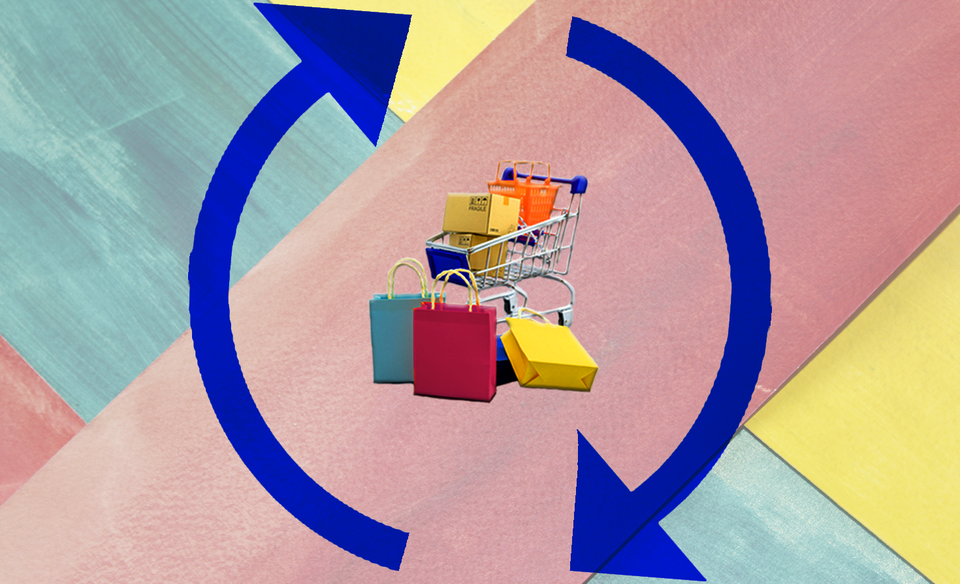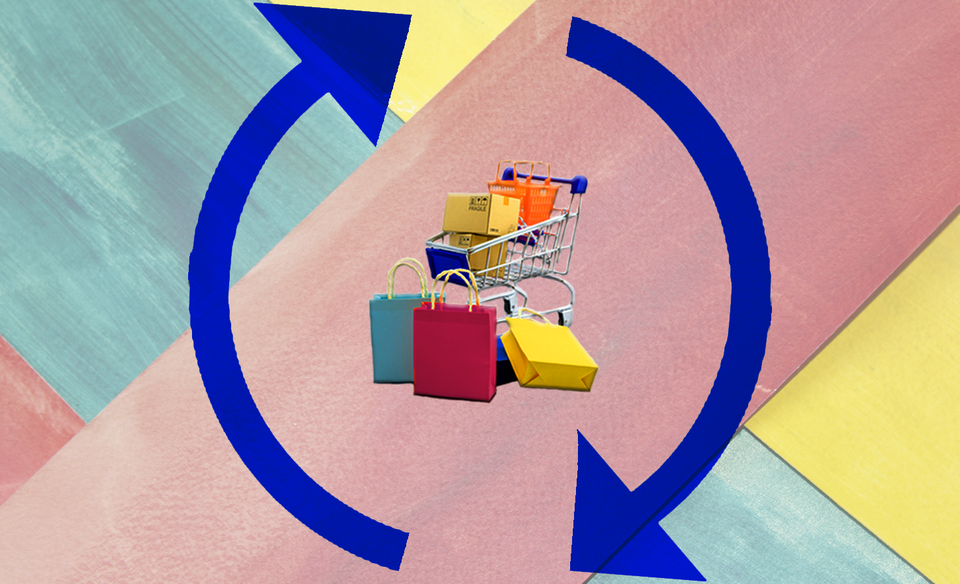
This article is drawn from the Circular Weekly newsletter from GreenBiz, running Fridays.
In early October, the world’s largest online thrift store, thredUP, announced a new program to partner with apparel companies on its secondhand retail platform. While nothing is inherently new about selling used clothes, the announcement highlights a growing trend within the apparel industry: Clothing brands are turning to recommerce partners to tap into secondary markets. Given the significant environmental impact of fashion in general, and fast fashion in particular, the implications could be significant.
Money talks: Secondary retail apparel — a $20 billion industry — is projected to grow 15 percent annually over the next five years, significantly outpacing traditional retail, with only 2 percent projected annual growth, according to thredUp’s 2018 Resale Report. Given that secondhand clothing sales exist regardless whether brands approve, the opportunity is obvious: Brands can make a margin on selling the same garment multiple times while maintaining brand and quality control.
As the average quality and durability of clothing increase (PDF), so do opportunities to capture new value through resale markets. Third parties offer brands the logistics, renewal, repair and recommerce expertise to quickly ramp up resale models at scale. And by centering on the consumer experience — improving the ease of selling used clothes, streamlining logistics, offering engaging online shopping platforms and ensuring quality — recommerce is more convenient and accessible to consumers than ever.
Here are four companies embracing partnership to catalyze secondary apparel retail markets:
1. thredUp: Typically, sellers can choose between receiving cash or store credit in exchange for their clothes, a common approach for secondhand stores. But thredUP’s new program UPcycle offers an additional 15 percent in value if sellers select payment in the form of a partner brand’s gift card. If a brand agrees to drive traffic to its online thrift store and pay the 15 percent bonus to sellers, it can drive sales to returning customers without even touching the used clothing. ThredUP manages apparel intake, pricing, marketing, selling and shipping.
While UPcycle has started with only one brand partner, sustainable apparel company Reformation, thredUP plans to announce a second partner on Black Friday and establish 10 new partnerships next year. “Retailers are realizing that through this program, they can launch a loyalty program that is good for the planet and good for business,” said Karen Clark, vice president of marketing communications and partnerships at thredUP, in a recent interview. “Sometimes, they don’t need to be mutually exclusive — customers are incentivized to resell.”
2. Yerdle Recommerce: The company’s “white label” service for apparel retailers — including Eileen Fisher, Patagonia and REI — enables brands to develop an online recommerce marketplace under their own names, without investing in a new website and warehouse or straying from their core competencies. The apparel brands encourage customers to return used goods in exchange for store credit. Yerdle then repairs and refurbishes those goods so that the apparel companies can sell them again as refurbished under their own brands in their own online stores (all managed by Yerdle), complete with warranties, customer service and return policies.
According to Yerdle Recommerce’s CEO Andy Ruben in a recent interview with GreenBiz, “People aspire to certain products and brands.” But higher price points make many products inaccessible to consumers, particularly younger ones. “Buying used is a great solve for that.”
3. The Renewal Workshop: With an approach akin to Yerdle’s, the company offers retailers a fully outsourced recommerce service, managing the reverse logistics, repair, cleaning, quality assurance and resale of used clothing to companies such as the North Face, prAna and icebreaker. Apparel brands pay a processing fee at a rate comparable to apparel waste management and can sell “renewed” clothing in their stores or on the Renewal Workshop’s website under a revenue-sharing agreement.
“The idea is to really brand the durability story by showing how their clothing lasts and retains its value,” explained (PDF) co-founder Nicole Bassett. The startup also helps companies improve design by sharing product failure data, encouraging increased durability.
4. The RealReal: Targeting the luxury resale market, this online consignment store aims to be the first $1 billion circular-economy company. In a founding partnership with Stella McCartney, sellers that consign pieces from this brand receive a $100 Stella McCartney gift card. Similar to thredUP’s approach, a financial incentive drives sales back to the company, while also giving apparel a second life.
According to Allison Sommer, director of marketing at the RealReal, “A few years ago, there was a lot of uncertainty into how we fit into luxury fashion, and all of a sudden, we are getting inbound requests from designers wanting to learn more about how our partnership with Stella is doing and how it is structured.” This week, the RealReal launched an online “sustainability calculator” to quantify its impact. An initial calculation found that the 2.5 million women’s clothing items consigned to the RealReal since 2012 have offset the equivalent of 65 million car miles worth of greenhouse gases and energy.
Some brands are beginning to find that recommerce, particularly when executed by partners, unlocks a low-risk, high-reward market for their goods and offers a straightforward path into a more circular business model. But so far, only a handful of companies are embracing recommerce. Many fear revenue cannibalization: that by making refurbished versions of their products available, they’ll curb sales of new ones.
Yerdle Recommerce’s Andy Ruben believes this perspective is shortsighted. “The used business is happening whether a brand promotes it or not. So, the real question is, does a brand want to partake in what is happening in a consumer-driven economy? There is a different customer for these used products than for new products. A brand participating in this space gets access to a group of customers that weren’t necessarily shopping them before.”
Time will tell whether brands will embrace recommerce at scale, or if this trend quickly goes out of style.

